Our live coverage of this year's Nobel Peace Prize has ended. Read more about the winner, Narges Mohammadi, and reaction to the prize.
Jailed Iranian activist Narges Mohammadi wins 2023 Nobel Peace Prize
By Christian Edwards, Ed Upright and Sana Noor Haq, CNN
"A woman, a human rights advocate, and a freedom fighter"
From CNN's Lauren Kent and Sana Noor Haq
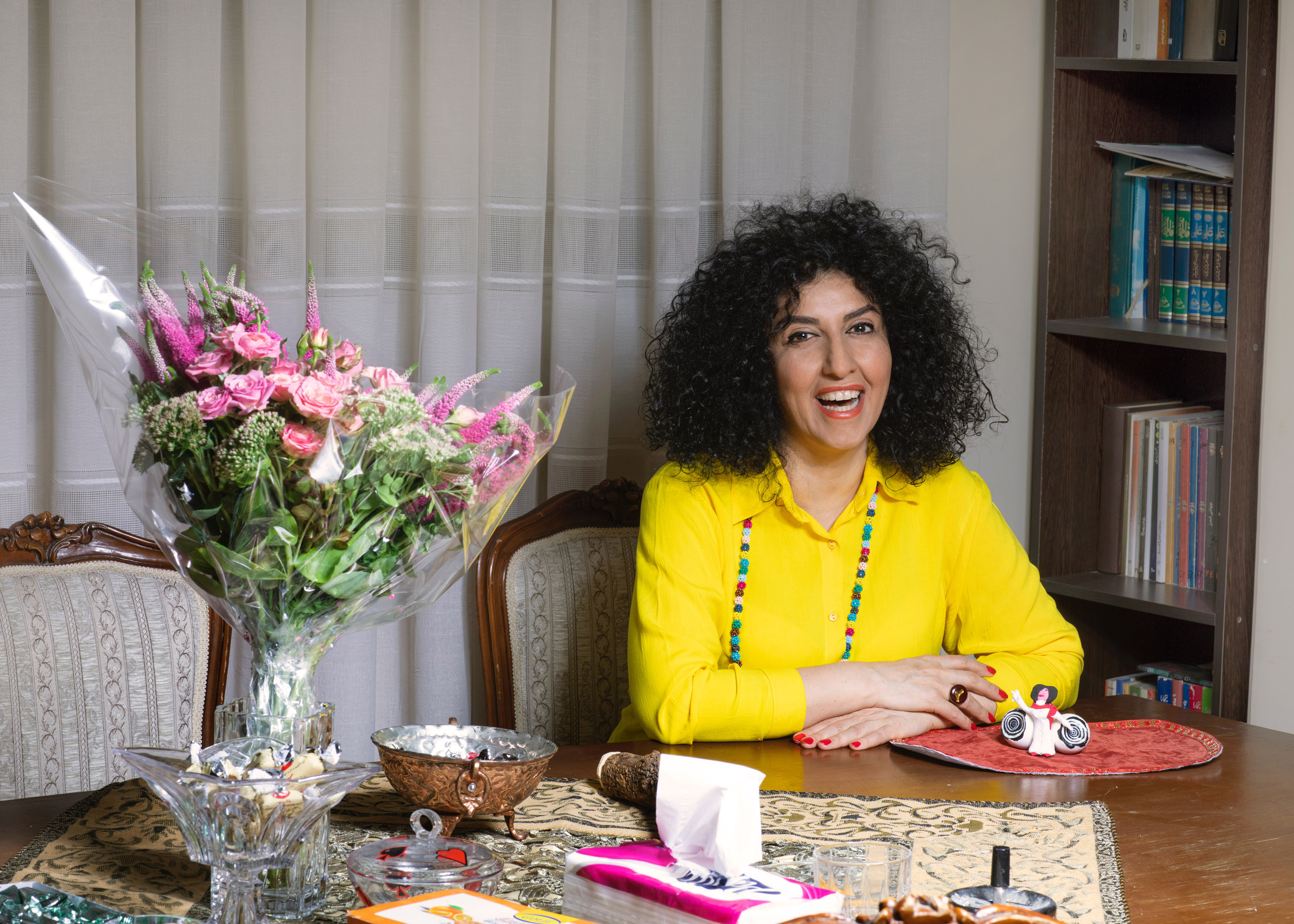
Narges Mohammadi spearheaded the campaign for human rights in Iran, in the face of a regime that has used torture to crush dissent.
Her rallying cry grew louder in September 2022, after the death of 22-year-old Mahsa Amini while in custody of the morality police sparked nationwide protests.
Hundreds of thousands of demonstrators used the slogan -- woman, life, freedom -- to organize the biggest threat against the Iranian regime since it came into power in 1979.
Even behind bars inside Tehran's notorious Evin prison, Mohammadi used her platform to lead the same chants, according to an audio recording she shared with CNN, before she won the Nobel Peace Prize on Friday.
The motto adopted by the demonstrators -- woman life freedom -- suitably expresses the dedication and work of Narges Mohammadi," Norwegian Nobel Committee chair Berit Reiss-Andersen said.
A history of campaigning: Mohammadi started advocating for women's rights while studying physics in the 1990s, later working as an engineer and writing for reform minded newspapers.
In 2011, eight years after first collaborating with the defense of Human Rights Center in Tehran -- which was established by the Nobel Peace Prize Laureate, Shirin Ebadi -- Mohammadi was first arrested.
In 2013, she was released on bail and used her freedom to campaign against the death penalty in Iran. The Iranian regime has historically been among the most prolific executioners in the world. Since January 2022, more than 260 prisoners have been subject to the death penalty in Iran, Reiss-Andersen said.
Mohammadi's advocacy work against the death penalty resulted in her re-arrest in 2015.
"Upon her return to prison, she began ... opposing the regime's systematic use of torture and sexualized violence against political prisoners -- and especially women -- that is practiced in Iranian prisons," Reiss-Andersen added.
The Iranian government has denied the widespread allegations of sexual assaults against detainees, including in an in-depth CNN investigation last year, calling them “false” and “baseless.”
A Nobel tribute: "Last year's wave of protests became known to the political prisoners held inside the notorious Evin Prison in Tehran. Once again, Ms. Mohammadi assumed leadership from prison. She expressed support for the demonstrators and organized solidarity actions among her fellow inmates," Berit Reiss-Andersen said.
"From captivity, Ms. Mohammadi has helped to ensure that the protests have not ebbed out.
"Narges Mohammadi is a woman, a human rights advocate, and a freedom fighter. In awarding her this year's Nobel Peace Prize, the Norwegian Nobel Committee wishes to honor her courageous fight for human rights, freedom and democracy in Iran," Reiss-Andersen said.
Family says award is a "source of solace for our indescribable suffering"
From CNN's Jomana Karadsheh and Adam Pourahmadi
Narges Mohammadi's family has been reacting to the news of her Nobel Peace Prize win.
"Although the years of her absence can never be compensated for us, the reality is that the honor of recognizing Narges' efforts for peace is a source of solace for our indescribable suffering," a statement given to CNN said.
"It has been more than eight and a half years since she has seen her children, and she has not heard their voices for over a year. All of this signifies what she has endured on the path to realizing her aspirations.
Therefore, for us, who know that the Nobel Peace Prize will aid her in achieving her goals, this day is a blessed day. We express our gratitude to you for your attention to Iran, the oppressed people of Iran, and the prisoners, civil activists, and protesters."
Mohammadi's activism has come at a great personal cost. She has been banned from speaking directly with her husband, Taghi Rahmani, and her children, Ali and Kiana.
Rahmani, who was himself held as a political prisoner for a total of 14 years, has lived in exile with their children in France since Mohammadi's imprisonment in 2015.
A brief history of Iran's rules on the hijab
This years's Peace Prize sends a likely unwelcome message to the authorities in Iran, which has for decades been dictating to women how they should dress.
The Islamic regime made the hjiab compulsory in 1979, after toppling the Pahlavi dynasty. It also created the notorious morality police, tasked with ensuring that the rules are followed.
Several anti-hijab movements have emerged in Iran over the years, often leading to crackdowns by the regime, with massive waves of arrest and persecution.
Following the death of 22-year-old Mahsa Amini in September of last year, many took to the streets protesting the mandatory hijab law and other issues.
The movement was violently quashed, however, and the regime responded months later with a new hijab bill that, if passed, would enshrine unprecedentedly harsh punitive measures into law.
The 70-article draft law, which was published on Iranian media just weeks before the one-year anniversary of the protests, set out a range of proposals, including much longer prison terms for women who refuse to wear the veil, stiff new penalties for celebrities and businesses who flout the rules, and the use of artificial intelligence to identify women in breach of the dress code.
Experts said the bill was a warning to Iranians that the regime would not back down from its stance on the hijab despite the mass demonstrations that rocked the country last year.
Days after the protest anniversary, Iran’s parliament last month passed a draconian new hijab legislation, which authorities said would be enacted for a three-year trial period once the Guardian Council, which oversees legislative matters in the Islamic Republic, approves it.
Parts of the bill are ambiguous, but some clauses sanction punishments of up to 10 years, and fines between 180 million rials ($4,260) and 360 million rials ($8,520).
The punishments are a sharp split from today’s measures. Under the current Islamic penal code, those in breach of the dress code face between 10 days to two months in prison, or a fine between 50,000 to 500,000 Iranian rials, what is today between $1.18 to $11.82.
It is “a clear response to the protests from September of last fall,” Sanam Vakil, director of the Middle East and North Africa program at the Chatham House think-tank in London, told CNN in August before the bill was introduced in parliament, adding that the establishment was attempting to “reassert authority over veiling and the requirements expected of women.”
2022 Nobel Peace Prize winner congratulates Mohammadi
From CNN's Sana Noor Haq
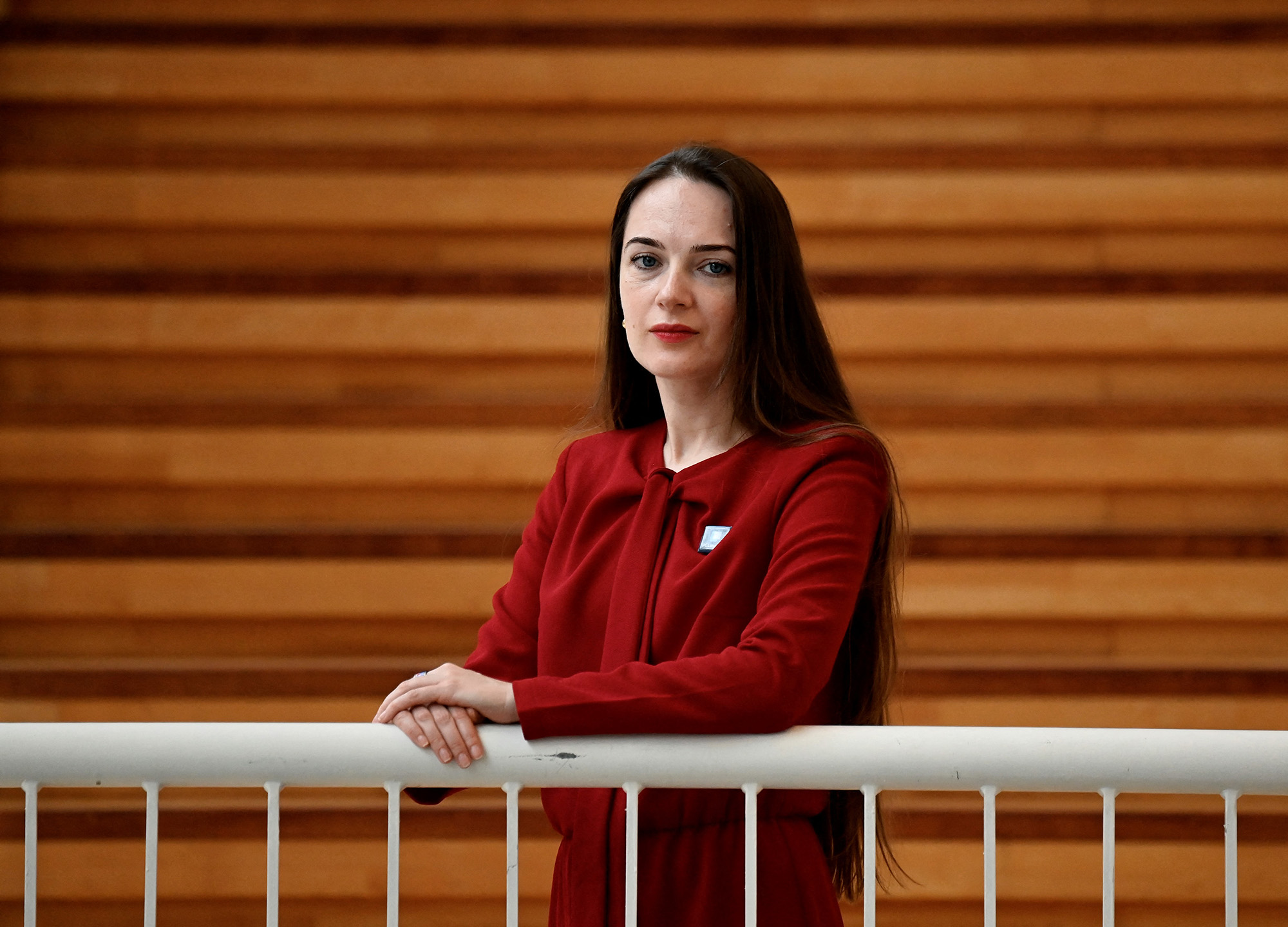
Oleksandra Matviichuk, a Ukrainian human rights lawyer and defender who won the Nobel Peace Prize in 2022, said she welcomed the committee's decision to award Narges Mohammadi "for her fight against the oppression of women in Iran."
"We live in a very interconnected world. Right now, people in Iran are fighting for freedom. Our future depends on their success," Matviichuk posted on the social media platform X, formerly known as Twitter.
She heads Ukraine's Center for Civil Liberties, which was founded in 2007 to advocate human rights values in Ukraine, in order to advance democracy in the country.
The group jointly won the Nobel Peace Prize last year. It played a significant role in identifying and documenting Russian war crimes against the Ukrainian population since Moscow launched its invasion in February 2022.
Matviichuk drew parallels between her and Mohammadi's efforts to hold authoritarian regimes accountable, while raising the voices of "people fighting for freedom."
"It is more than obvious for Ukraine. I live in Kyiv, which is regularly bombarded by Russian missiles and Iranian drones. If authoritarian regimes cooperate, then people fighting for freedom have to support each other much more strongly," she said on Friday.
Prize also honors "hundreds of thousands" who have demonstrated for women's rights in Iran
From CNN"s Nadeen Ebrahim
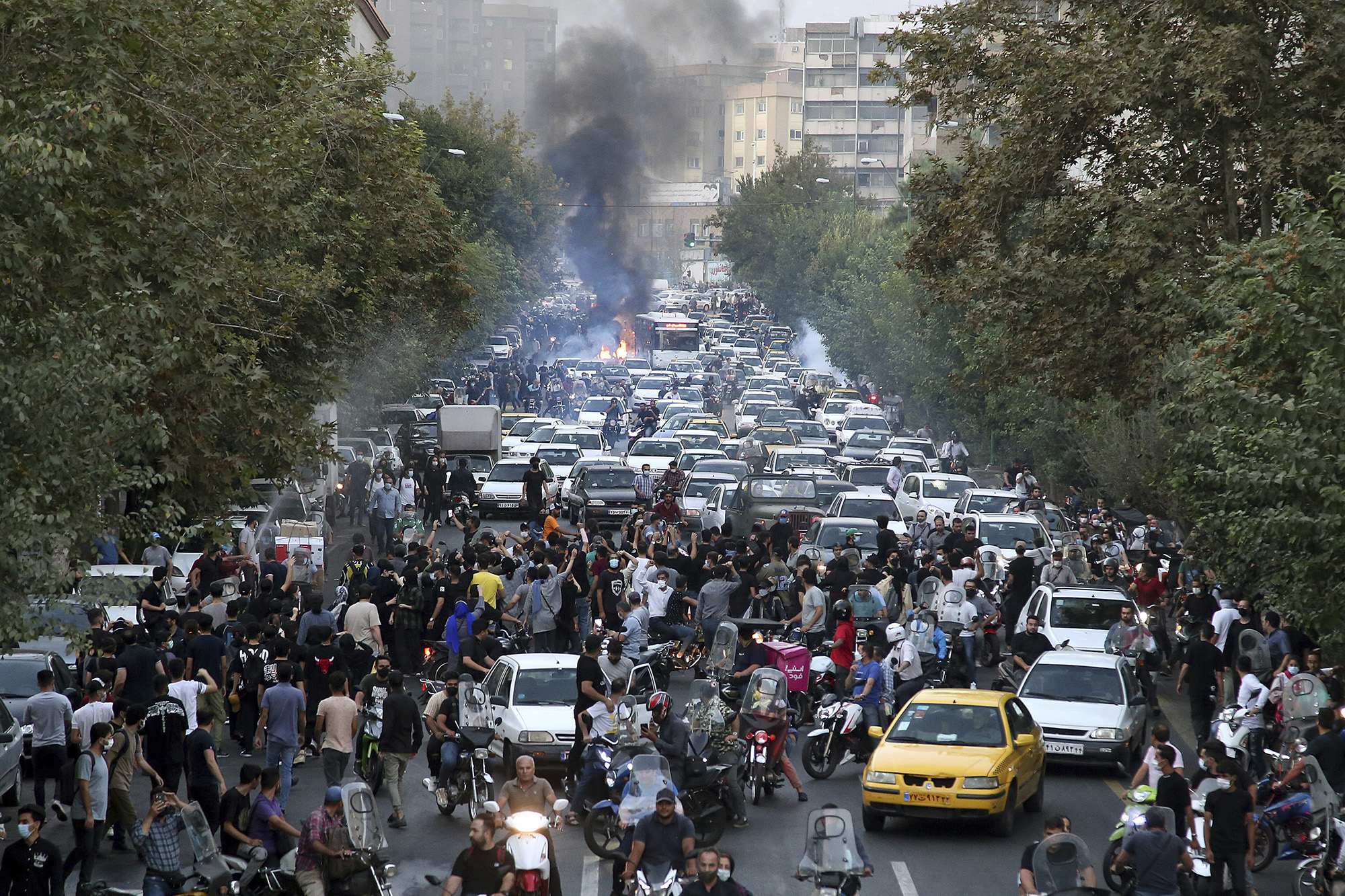
“This year’s Peace Prize also recognizes the hundreds of thousands of people who in the preceding year have demonstrated against the theocratic regimes’ policies of discrimination and oppression targeting women,” Norwegian Nobel Committee chair Berit Reiss-Andersen said.
Reiss-Andersen was referring to the mass protests that broke out a year ago following the death of 22-year-old Mahsa Amini, who died in the custody of Iran’s notorious morality police.
Days after her death, Iranians took to the streets in unprecedented widespread demonstrations, with many decrying the hijab law, the impunity of the morality police and other issues.
Some called for the downfall of the regime. Authorities responded violently, suppressing the movement with widespread reports of deaths, disappearances and even torture in custody.
Iran’s morality police, which had largely pulled back following the protests last year, this year resumed street patrols, and just weeks before the one-year anniversary of Amini’s death and the protests that followed, Iranian authorities began considering a draconian new bill on hijab-wearing that experts said would enshrine unprecedentedly harsh punitive measures into law.
The country’s parliament passed a new legislation on hijab-wearing last month.
The Guardian Council, which oversees legislative matters in the Islamic Republic, still needs to approve the bill before it is implemented.
Mohammadi is the 19th woman to win the Nobel Peace Prize
From CNN's Thom Poole
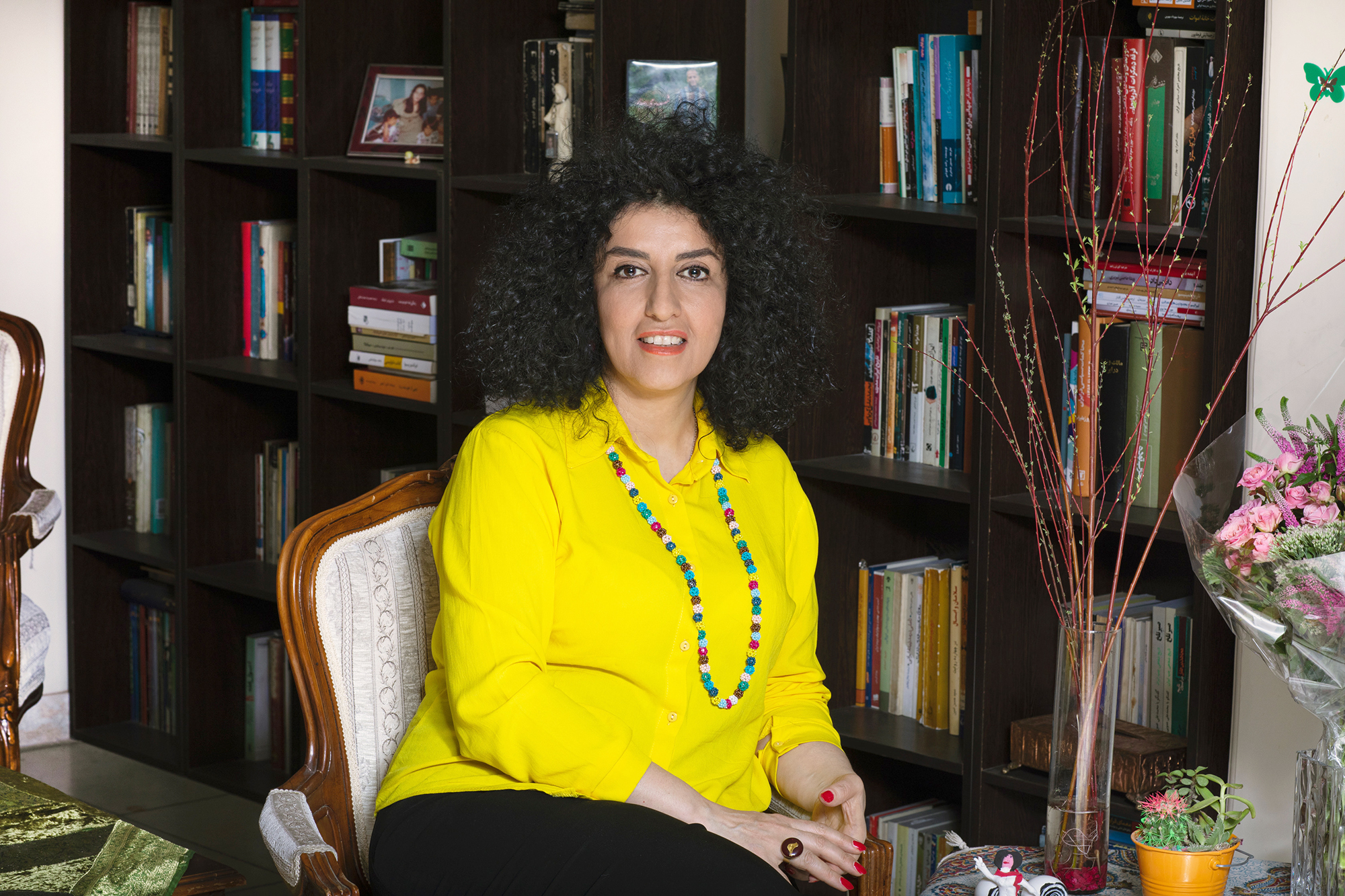
Narges Mohammadi is just the 19th woman to win the Nobel Peace Prize in more than 120 years of the prize.
Nadia Murad, a Yazidi human rights activist and survivor of sexual slavery at the hands of ISIS in Iraq, jointly won the prize in 2018.
Other female winners include Pakistani education campaigner Malala Yousafzai, and Ellen Johnson Sirleaf, who became Africa's first democratically elected woman leader when she became Liberian president in 2005.
Another Iranian woman, human rights lawyer Shirin Ebadi, won the prize in 2003.
The Nobel website says for much of its history the Peace Prize "had almost exclusively been the preserve of highly educated white men from Europe and the United States."
Mohammadi's activism in Iran has come with "tremendous personal costs"
From CNN's Jomana Karadsheh, Adam Pourahmadi and Sana Noor Haq
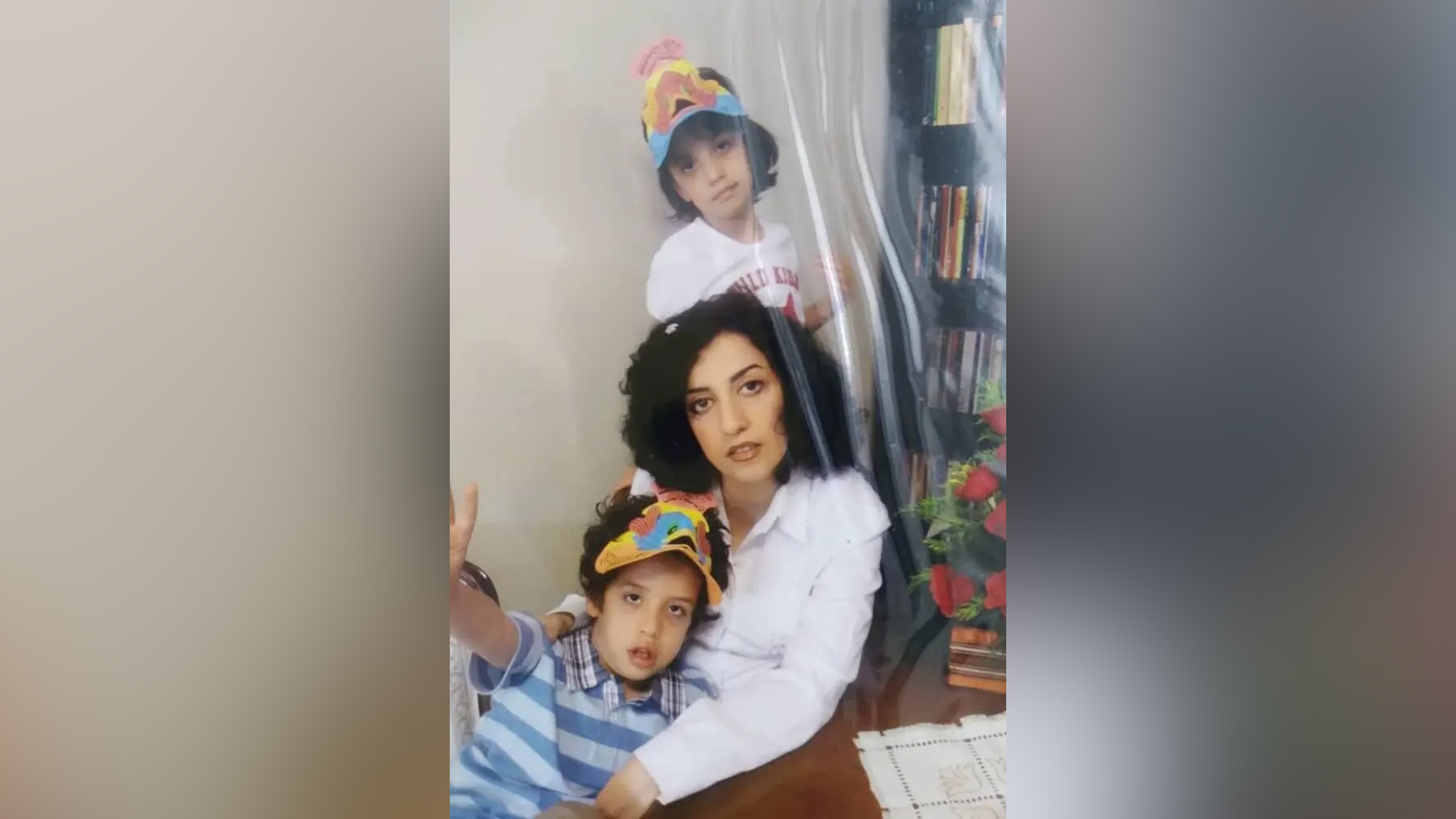
The Iranian regime has imprisoned Narges Mohammadi for her advocacy work against the oppression of women inside Iran.
“Her brave struggle has come with tremendous personal costs," Norwegian Nobel Committee chair Berit Reiss-Andersen said at the announcement ceremony on Friday.
The government in Iran has arrested Mohammadi 13 times, convicted her five times, and sentenced her to a total of 31 years in prison, and 154 lashes, according to Reiss-Andersenn.
Following her release on bail, she was re-arrested in 2015 and sentenced to additional time in jail, the Nobel Prize said on the social media platform X, formerly known as Twitter.
But even behind walls, she has used her voice to campaign rail against the use of the death penalty in Iran and the regime's mandatory hijab law.
Earlier this year, Iran's parliament passed draconian new legislation imposing much harsher penalties on women who breach hijab rules, days after the one-year anniversary of Amini's death sparked mass demonstrations.
For refusing to be silenced while in prison, Mohammadi has been banned from speaking to her husband, Taghi Rahmani, and her children, Ali and Kiana, for the past 18 months.
I am really proud of my mom,” Ali told CNN, before his mother was awarded the Nobel Peace Prize on Friday.
“She was not always with us, but whenever she was, she took good care of us… she was a good mom and still is… I have accepted this kind of life now. Any suffering that I have to endure does not matter.”
Nobel committee's recognition of Mohammadi sends "powerful message to the leaders of Iran"
From CNN's Christian Edwards
The recognition of Iranian activist Narges Mohammadi by the Norwegian Nobel Committee is a "tremendous achievement for women's rights in Iran," a Peace Prize specialist told CNN.
“Narges Mohammadi was top of my shortlist. Her win is a tremendous achievement for women’s rights in Iran," Henrik Urdal, director of the Peace Research Institute Oslo, said in a statement to CNN.
"Women in the country have been fighting for equality and freedom for generations, and the death of Mahsa Amini became a catalyst against oppression and violence. Today’s laureate, unfairly jailed in Tehran, sends a powerful message to the leaders of Iran that women’s rights are fundamental everywhere in the world.”






